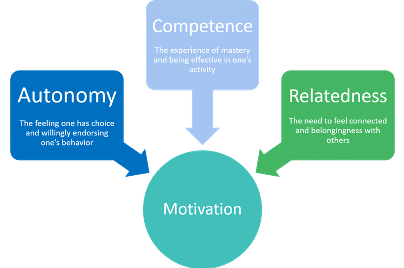Motivating Your Team During an Ongoing Crisis

The COVID-19 pandemic and its continuing influence have changed the way we interact with our internal team and external partners. Finding ways to keep your team motivated, particularly as the pandemic continues to restrict traditional practices, is essential.
Team members are facing ongoing distractions while managing work from home schedules or as they transition back into the workplace. It’s important to remember that engagement is still the foundation of a productive and cohesive team. Working to make sure that your team is engaged and involved in projects that matter to them, serve a greater purpose, and help them connect with other team members is essential. Encourage them to get creative, experiment, and solve problems that really matter.
It can be helpful to offer the following three step model once your team identifies and names a problem, 1) ask for their recommendations, 2) discuss how to measure the problem, and 3) encourage them to spend some time working up possible solutions and reconvene as a team to decide on the best path forward.
What and how you measure team success is the single strongest indicator of what you and your organization care about. Using a preconstructed or custom tool to measure motivation while having follow-up conversations surrounding what factors might be increasing or decreasing motivation will help team members recognize you care and are working to make sure they find their work meaningful. Some ways to start this process include being explicit in your expectations for team members, including what a “job well done” might look like, communicating how projects or challenges relate back to the company values and purpose, and encouraging leaders in your organization to check in regularly with their team.
Allocating ample time (up to 50%) for your team to solve problems and get away from simply tactical work is a simple yet productive way to get your team involved.
Additionally, relying on well-researched and practical psychological theories can support leaders in ensuring their team is motivated and pushing forward. Self-Determination Theory (SDT) is a well-established and common practice in supporting high performers across sport and business. It is composed of three core principles: relatedness, autonomy, and competence.

- Relatedness includes making your employees feel cared for and a sense of belonging. This can look like validating your team’s experiences, emphasizing contributions, supporting teambuilding activities, and engaging with your team regarding their overall well-being.
- Competence includes a team member feeling effective and working towards growth. This can be implemented by including team members in the decision-making process, regular check-ins to discuss goals, and skill development.
- Autonomy includes empowering team members to feel like they have the power to make decisions and act on choices that are aligned with their values and goals. This can be implemented by encouraging self-initiation and participation. Avoiding controlling language and micromanagement while being transparent and working toward regular collaboration.
By Zach Graham, M.Ed.
